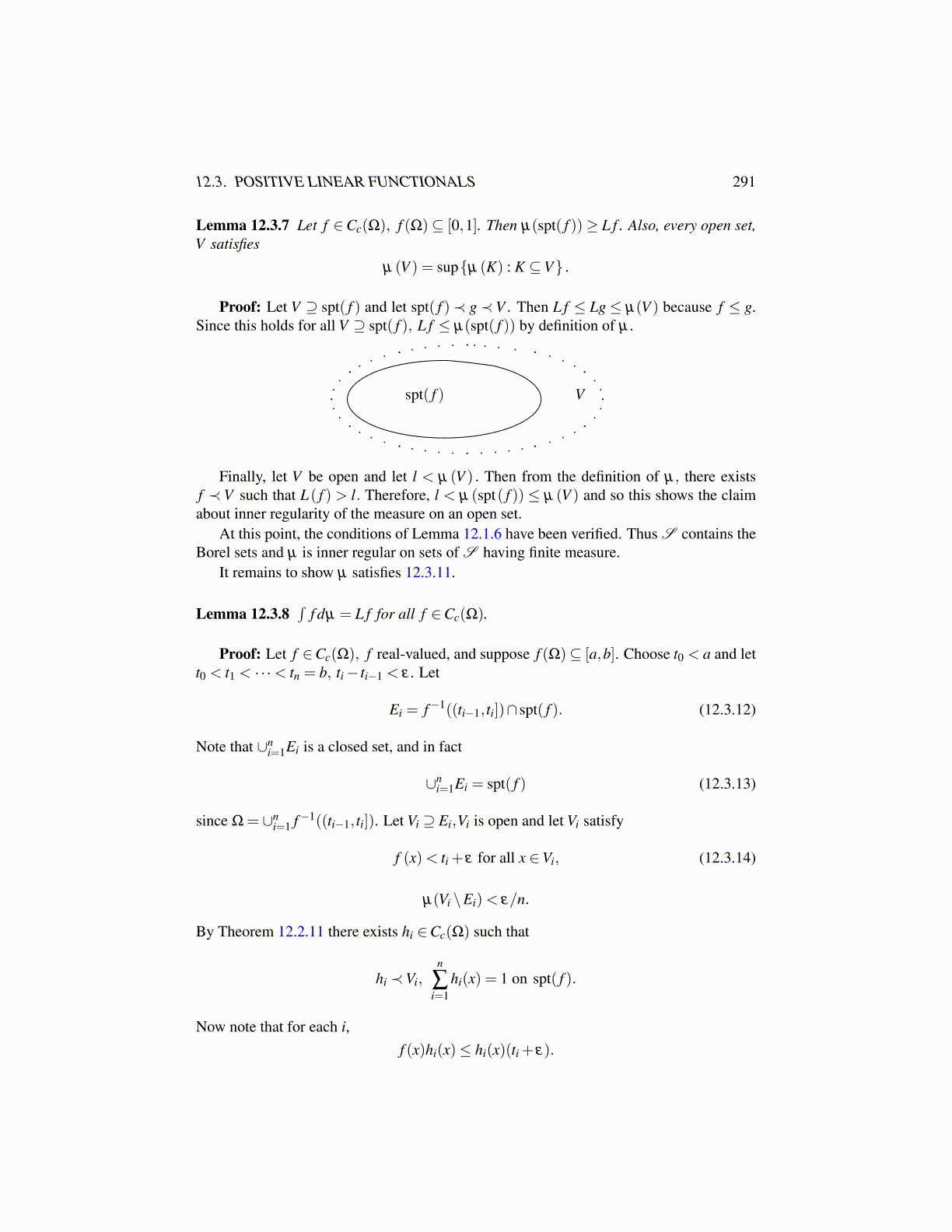
12.3. POSITIVE LINEAR FUNCTIONALS 291
Lemma 12.3.7 Let f ∈Cc(Ω), f (Ω)⊆ [0,1]. Then µ(spt( f ))≥ L f . Also, every open set,V satisfies
µ (V ) = sup{µ (K) : K ⊆V} .
Proof: Let V ⊇ spt( f ) and let spt( f ) ≺ g ≺ V . Then L f ≤ Lg ≤ µ(V ) because f ≤ g.Since this holds for all V ⊇ spt( f ), L f ≤ µ(spt( f )) by definition of µ .
Vspt( f )
Finally, let V be open and let l < µ (V ) . Then from the definition of µ, there existsf ≺ V such that L( f ) > l. Therefore, l < µ (spt( f )) ≤ µ (V ) and so this shows the claimabout inner regularity of the measure on an open set.
At this point, the conditions of Lemma 12.1.6 have been verified. Thus S contains theBorel sets and µ is inner regular on sets of S having finite measure.
It remains to show µ satisfies 12.3.11.
Lemma 12.3.8∫
f dµ = L f for all f ∈Cc(Ω).
Proof: Let f ∈Cc(Ω), f real-valued, and suppose f (Ω)⊆ [a,b]. Choose t0 < a and lett0 < t1 < · · ·< tn = b, ti− ti−1 < ε . Let
Ei = f−1((ti−1, ti])∩ spt( f ). (12.3.12)
Note that ∪ni=1Ei is a closed set, and in fact
∪ni=1Ei = spt( f ) (12.3.13)
since Ω = ∪ni=1 f−1((ti−1, ti]). Let Vi ⊇ Ei,Vi is open and let Vi satisfy
f (x)< ti + ε for all x ∈Vi, (12.3.14)
µ(Vi \Ei)< ε/n.
By Theorem 12.2.11 there exists hi ∈Cc(Ω) such that
hi ≺Vi,n
∑i=1
hi(x) = 1 on spt( f ).
Now note that for each i,f (x)hi(x)≤ hi(x)(ti + ε).